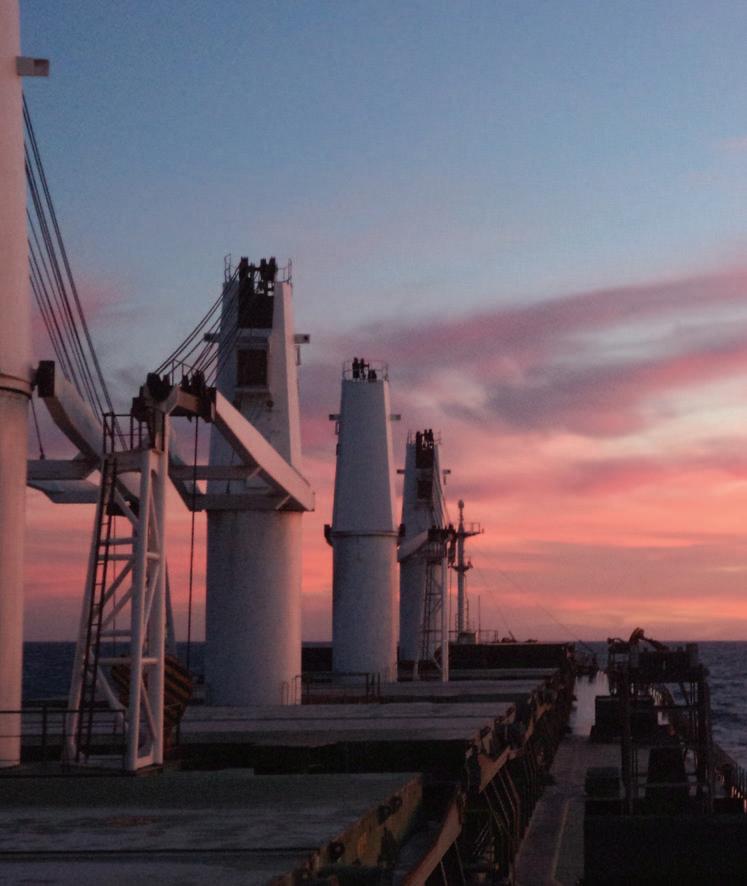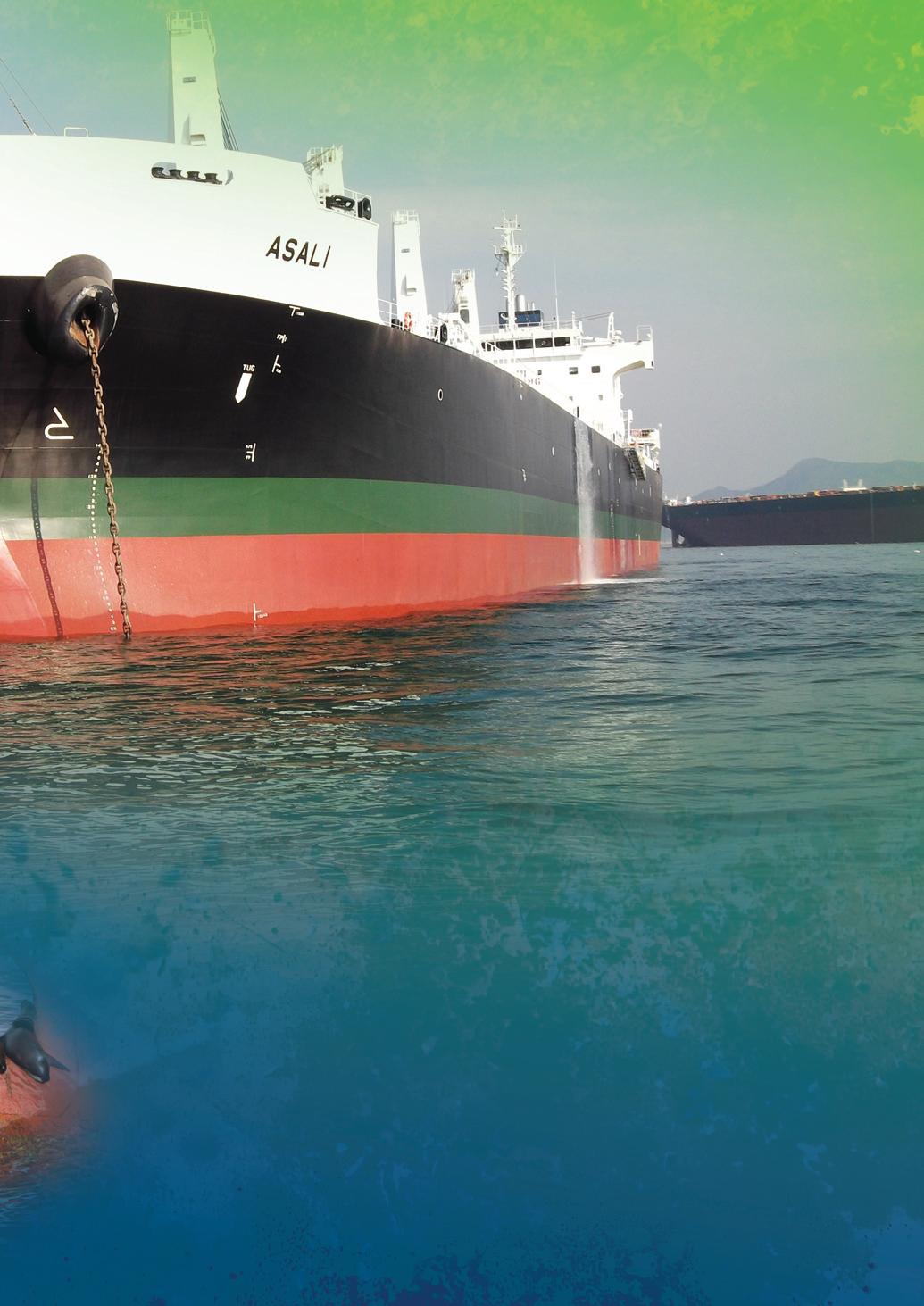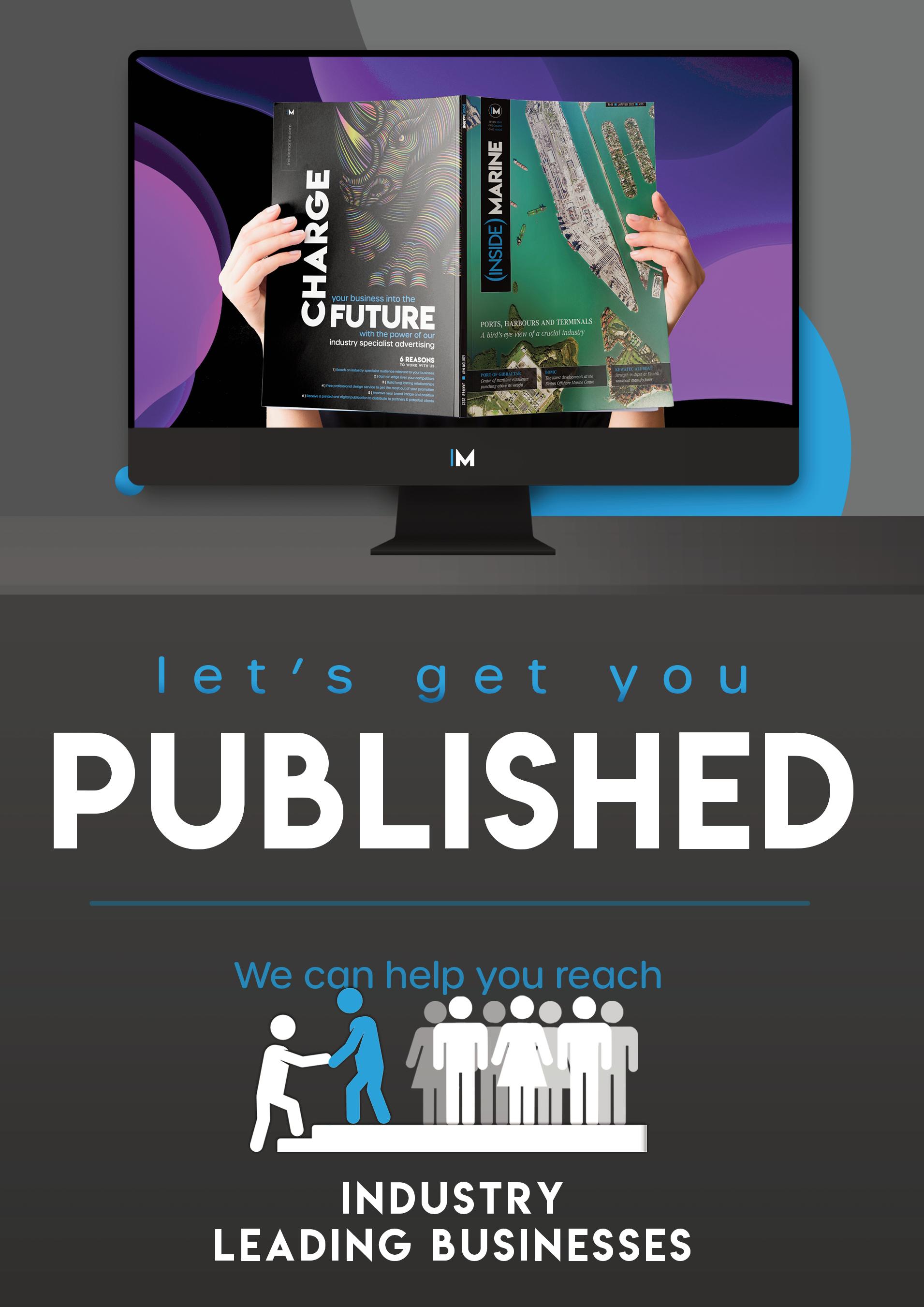


Almi Marine Management is committed to delivering a first-class service. With over 30 years’ experience at sea, the company provides the very best ship management to its clients. Now, with its fleet set to expand, Managing Director Christos Hadjigeorgiou sat down with Inside Marine to share the latest news. Report by Imogen Ward.
With 285,931 MT of deadweight capacity currently under its care, Almi Marine Management provides a reliable and efficient service whilst protecting its crews and the environment.
“Almi Marine invests a substantial amount of money to ensure we do not cut corners when it comes to safety,” Managing Director Christos Hadjigeorgiou explained. “When it comes to ship maintenance, we always take a proactive approach.”

Founded in 1992, Almi Marine successfully initiated its first newbuild project five years later. Now, the company manages a youthful Supramax fleet, using a threepronged approach to ensure customer contentment. This includes an experienced team of managers, technically sound and well-maintained vessels, and well-trained crews.
“Currently, we have two Kawasaki 58K Supramax vessels, built by Kawasaki Heavy Industries in 2012 and 2013 respectively, ” Mr Hadjigeorgiou continued. “We

also have two 56K Supramax ships that were constructed by Mitsui Tamano Shipbuilding in 2008 and 2011. Our final vessel was built in Korea back in 2011 by STX Offshore and Shipbuilding Jinhae, and that has a deadweight of 57.7K.”
Over the years, the size of Almi Marine’s fleet has varied from five to eight vessels With the new year in full swing (and bringing in fresh opportunities), the company is readying to expand once again.
Growing the fleet
Eager to strengthen its presence within the industry, Almi Marine has three additional newbuilds on order. With construction of the vessels being undertaken by



Chinese-based shipyard Dalian COSCO KH I Ship Engineering Co (DACKS), the first two (both of which are 64K Ultramax) have been scheduled for delivery in Q2 of this year. Delivery of the final vessel (of the same calibre) is anticipated by the end of Q3.
“These vessels are the most fuel-efficient examples that the market has to offer,” said Mr Hadjigeorgiou. “This is our con tribution towards a greener shipping industry, given the constraints of the industry’s current technical abilities in relation to the transition towards cleaner fuels.”
Almi Marine has made sure these new vessels are EEDI Phase 3 compliant. With the regulation calling for all newbuild vessels to achieve at least 30% carbon reduction, Almi Marine has gone the extra mile to ensure its newbuilds exceed that with an impressive emissions reduction of 50% (in comparison to the EEDI reference lines).
Industry-wide decarbonisation
As the industry continues to assess the transition towards greener fuels, the topic of decarbonisation is heavy on the minds of those it affects most.
At the Green Shipping Summit 2023, Mr Hadjigeorgiou presented his ideas for designing the future of the shipping industry. Focusing on the topic of industrywide decarbonisation, the proposal seeks to learn from the past in order to move forward into the future.
Having started his career at Hellenic Shipyards in the 1980s, Mr Hadjigeorgiou learned first-hand about the various

solutions that the yard developed. One such example, was that of a T2 tanker conversion, which saw the vessel transformed in sections. Mr Hadjigeorgiou was inspired to use this ingenuity as the basis of his proposal.
“The issue with the journey towards decarbonisation is that there is no real guidance, and there is no inter-governmental regulation that agrees shipping will use a certain type of fuel in the future,” Mr Hadjigeorgiou explained. “So, the shipping industry must find alternatives that might not even exist at present. Taking this into account, I propose that we
should build ships using modular electric and hybrid propulsion systems that can then be easily converted in the future – once the industry has found the best fuel solution.
“If you take cruise ships for example, currently they run on diesel-electric propulsion. I propose the tanks, generators and equipment should be installed within a specific space in the ship. Then, when it comes time to convert, this compartment can be removed and replaced with a prefabricated module without having to change any other area of the ship.”
Although Mr Hadjigeorgiou has faith in his proposal, there are still challenges ahead. According to Mr Hadjigeorgiou, a continued lack of regulation could halt the proposal in its early stages: “If this idea was adopted, then rules would need to be put into place that help regulate,

whilst also raising awareness at the early stages.
“I recently attended a technical committee, where it was suggested that if we were to achieve the 2030 target laid out by the IMO, we would need a ship building capacity of around 25 per cent more than the entire global capacity. That is why these targets are difficult, because it takes a minimum of two years to take a ship from design to delivery: and that’s without even considering whether the fuel technology is ready.”
Looking to the future
When it comes to the next steps, Mr Hadjigeorgiou believes a new outlook is needed. Having previously witnessed a reactive approach to disasters and incidents out at sea, the Managing Director believes that a proactive and pre-emptive
stance is the way forward: “The industry reacts to disasters: that is how the Safety of Life at Sea regulations were formulated. The problem with that mindset is that this particular disaster we are facing now is not specific; it comes in many shapes and forms and spans the entire globe. That is why a proactive approach to climate change is so vital.
“At Almi Marine, we have always favoured a proactive approach, it is embedded in our philosophy to ensure the very best service for our customers.”

Regardless of what decision the industry makes, Almi Marine is determined to continue providing for its clients.
“We would like to grow steadily, whilst continuing to make careful decisions that take the environment, our customers and our crews into account,” Mr Hadjigeorgiou concluded. “Here at Almi Marine, we have a great team of people that work well together; a good name in the market, and a lot of people that want to work with us. The future is looking bright for Almi Marine.”
n

